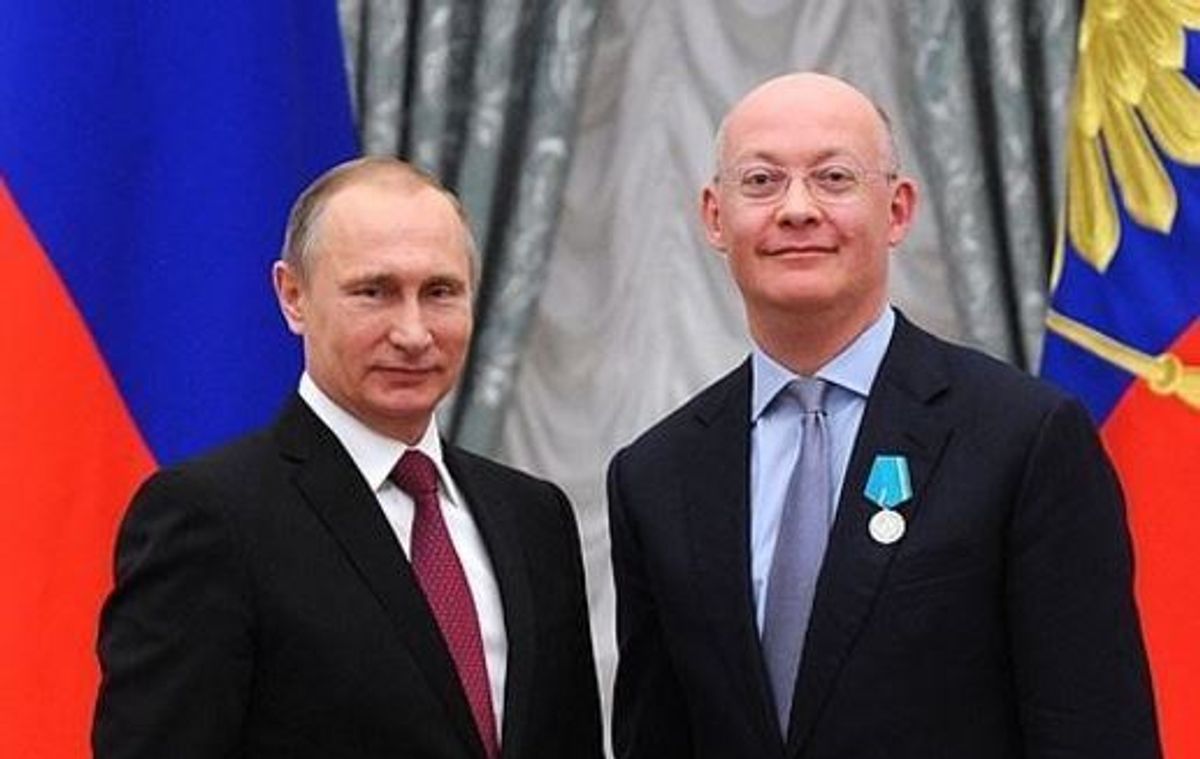The director of the UK Science Museum Group, Ian Blatchford, is handing back the Pushkin Medal, one of Russia’s highest honours, to the Russian government in the wake of the invasion of Ukraine. Blatchford received the medal from the Russian President Vladimir Putin in 2015 at a ceremony in the Kremlin in Moscow.
The Pushkin Medal marked the success of the Cosmonauts: Birth of the Space Age exhibition held at the Science Museum in London in 2015, says Blatchford in an online statement. He adds, however: “I cannot keep a medal that was handed out in the name of the Russian state by Vladimir Putin, who is responsible for this war. My enduring admiration for the Russian people themselves, and their cultural and scientific achievements, is undiminished.”
The Cosmonauts show was billed as “the greatest exhibition of Soviet spacecraft and artefacts ever to be seen outside Russia”, and included Vostok-6, the vessel that took the cosmonaut Valentina Tereshkova into space in 1963. “We had hoped to mark an important part of 20th-century history and also foster stronger progressive links between the UK and Russia,” Blatchford adds.
But the Russian conflict with Ukraine was already underway in 2015 after Russia annexed Ukraine’s Crimea peninsula in 2014. A report from Sky News said: “We understand that Cosmonauts: Birth of the Space Agehas provided him [Putin] and [then Prime Minister] David Cameron with something positive to talk about at otherwise awkward discussions about Ukraine and ISIS.”
The Cosmonauts exhibition was sponsored by the oil giant BP, with the press release stating that “Cosmonauts: Birth of the Space Age has had additional support from [the fund] Art Russe (Major Funder) and the Blavatnik Family Foundation”. Ukrainian-born businessman Blavatnik has also backed a host of other major museum projects in the UK including Tate Modern’s extension which opened in 2016.
Meanwhile, the Science Museum Group has cancelled an exhibition exploring the development of the Trans-Siberian Railway, which was due to open at the National Railway Museum in York this summer along with a smaller display at the Science Museum in London. A statement on the museum website says that “in light of distressing events in Ukraine, we have decided not to proceed with our upcoming exhibition at the National Railway Museum and Science Museum, Trans-Siberian: The World’s Longest Railway.”
The show would have focused on “the engineering challenge behind the railway’s construction and its social and economic impact”. Crucially, the principal partner of the exhibition is the Joint Stock Company Russian Railways, which, according to the Financial Times, faces sanctions imposed by the European Union. A Science Museum Group spokesman says: "It’s worth noting the partner is not on a UK list of sanctions."


